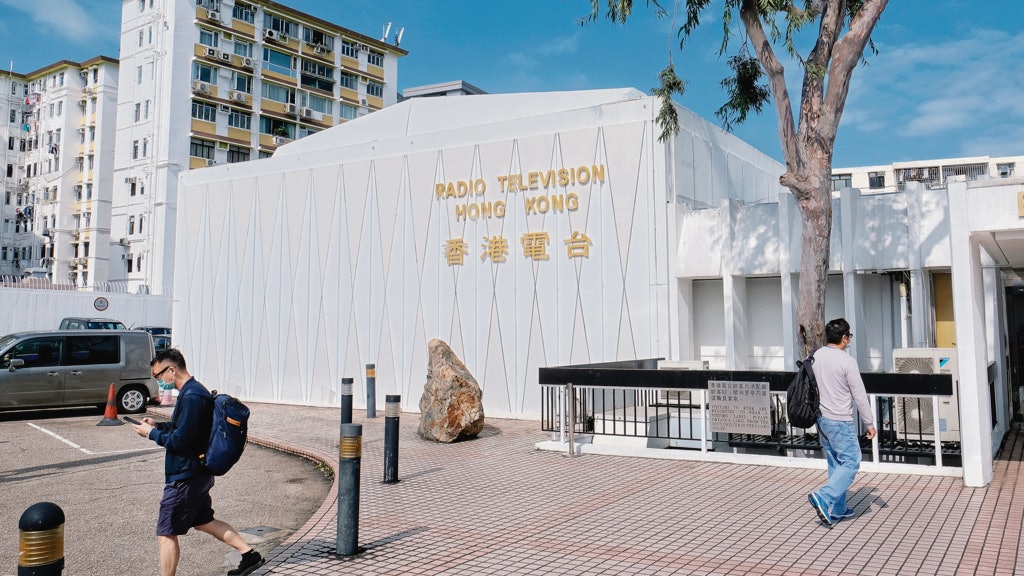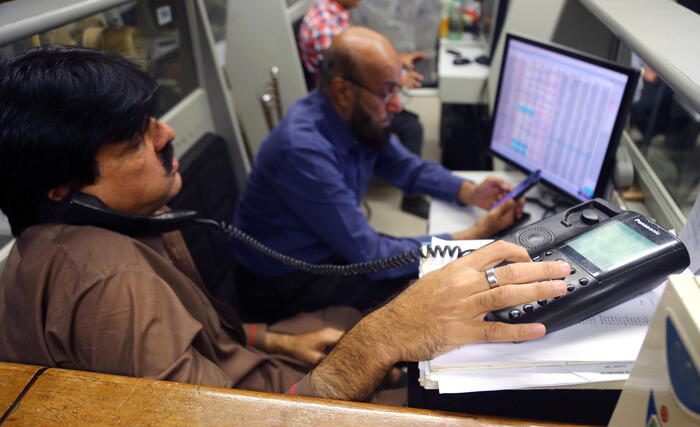weekly
Written by: Huang Shunyang
2021-02-27 17:56
The last update date: 2021-02-27 17:56
The Hong Kong government announced the "Review on the Governance and Management of Radio Television Hong Kong" (hereinafter referred to as the "Report") on February 19. The Secretary for Commerce and Economic Development, Yau Tenghua, cited the report as revealing the three major shortcomings of Hong Kong and Taiwan. Some people described it as "late "Report", the RTHK production staff union criticized the government for "beating RTHK to death". In addition, the authorities announced on the same day that it had terminated the contract with the Director of Broadcasting, Leung Ka Wing, and was replaced by the Deputy Secretary-General of the Home Affairs Bureau, Li Baiquan, who was indeed an administrative officer. Lenovo Hong Kong and Taiwan are being suppressed.
In fact, as a government department, it is understandable for the government to take accountability and rectification in response to its management issues. However, the fact that RTHK has repeatedly become the focus of controversy is not the failure of management but its positioning. However, the "Report" does not address the latter. .
If the government fails to clarify even the most basic positioning problem, the accountability management problem is undoubtedly "a temporary solution but not a permanent solution."
Hong Kong society is torn apart, the media has been repeatedly pushed to the forefront, and the public broadcaster Radio Hong Kong is not immune. A series of opinion columns produced by it, including "Headline News" and "Left and Right Red, Blue and Green", have been criticized from time to time. The position is biased, the content is inaccurate or not sufficiently balanced.
According to the "Charter of Radio Television Hong Kong" (hereinafter referred to as the "Charter") governing the operation of RTHK, RTHK should be "equal, editorially independent and professional."
After all, who will check the program during the production process?
Regarding complaints, how will RTHK handle and follow up?
On February 19, the government announced that the Director of Broadcasting, Liang Jiarong, would terminate the contract six months in advance and be replaced by Li Baiquan, Deputy Secretary-General of the Civil Affairs Bureau.
(Photo by Liang Pengwei)
"Report" reveals three major shortcomings
The "Report" of the Bureau of Commerce and Economics pointed out that there are three major shortcomings in the current structure of Hong Kong and Taiwan, including editorial management issues, lack of transparency in the complaint mechanism, and employee management issues.
The report reveals that the editor-in-chief and senior management personnel who should be responsible for the content of the program and have the final decision-making power have always been in a passive position during the production of the program. Instead, the decision-making power rests on the "individual producer or program unit director."
The "Report" also criticized the limitations of RTHK's reporting mechanism. The program production team only dealt with sensitive issues through oral communication and did not establish a written record for consulting senior and legal personnel.
The lack of effective supervision at the upper level and the opaque production process at the lower level inevitably make people question how the quality of the program is controlled and how to ensure that the production team can grasp the "accurate, balanced and highest news standards" when handling sensitive content?
In addition, RTHK lacks a transparent mechanism for handling complaints.
The "Report" pointed out that "regardless of the nature or severity of the complaint, the same responsible producer or unit of the complained program is allowed to investigate and pass the investigation results." There is no monitoring mechanism to ensure that the announced reporting arrangements are strictly followed. Such "checking one's own person" will undoubtedly give people the suspicion of "privately giving and receiving."
The director of the Communication and Program Standards Group, who is responsible for reporting complaints to senior management, only lists the "statistics of public response types and response channels" in the briefing. The senior management of RTHK may not know the established complaints and their detailed information, which is difficult to protect. Public complaints are handled properly and fairly.
The review report published earlier by the government pointed out that there are three major shortcomings in Hong Kong and Taiwan, including editorial management issues, lack of transparency in the complaint mechanism, and staff management issues.
(Photo by Liang Pengwei)
Lack of a comprehensive development plan
The management of Hong Kong and Taiwan is chaotic. A series of problems seem to be caused by administrative failure and lack of effective management, but in the final analysis, it is the lack of comprehensive development planning and the ambiguity and extremely contradictory positioning of Hong Kong and Taiwan.
Since the signing of the "Chart" in 2010, RTHK's business scope has expanded rapidly, gradually extending from the original radio service to public digital television and new media services.
Up to now, RTHK operates seven radio channels, three 24-hour digital terrestrial television channels and new media services.
Asia Television ended its free television broadcasting in 2016. Two of the public analog spectrums (Hong Kong and International) were taken over by RTHK and changed to RTHK TV 31 and 31A, and then ceased operation due to full digitization.
During this period, the broadcast time of RTHK TV services has also rapidly doubled. The total number of first broadcast hours has tripled from 577.3 hours in 2009/10 to 1,775.6 hours in 2019/20. In the future, it is planned to increase the broadcast hours of TV programs. To 26,280 hours.
However, the establishment of civil servants in Hong Kong and Taiwan has not increased significantly with business expansion.
In the past ten years, the establishment of civil servants in Hong Kong and Taiwan has added 204 posts.
Among the current 735 civil service posts, 546 are in the programme officer grade, and the remaining 189 posts are in the general grade, telecommunications engineer grade, technical officer grade and other common grades.
If 144 full-time general non-civil service contract employees, 15 non-civil service contract employees, and 3 T-contract employees (information technology contract employees) are counted, RTHK currently has 897 full-time employees.
In comparison, the radio station operating five digital terrestrial TV channels (Jade, J2, Wireless News, Pearl, and Wireless Finance and Information) had 3,659 full-time employees as of June 30, 2020.
The full-time employees of RTHK are less than one-third of TVB.
The existing civil service establishment of RTHK cannot keep up with the development needs, and there is also a lack of long-term development plans and corresponding human resource plans. As a result, each branch only focuses on short-term operational needs, in order to charge for service-based Type II service provider contracts Come and hire enough people.
According to the "Report", RTHK has not set headcount and expenditure limits for related mechanisms, nor has the contract clearly stated the service quality and performance level, nor has it established a performance evaluation system.
However, for RTHK, which is understaffed, Category II service providers (Cat2) are undoubtedly the "most convenient" countermeasures to meet the immediate needs of producing radio and television programs.
Therefore, among the number of Type II service providers (1,826) by service category, mainly show hosts (809 people) and writers (470 people).
The latter has a broad definition, and some types of jobs overlap with the work of the program director grade.
The "Report" also pointed out that "Type II service mechanisms give rise to the impression of greed and convenience."
The human resource structure system of Hong Kong and Taiwan is like "catching a duck to the shelves." Each organization does its own work, and there is no reasonable plan for human development.
Although on the one hand, RTHK has repeatedly achieved good results in the media credibility and program quality evaluation conducted in the market, on the other hand, the overall ratings of its programs are definitely not ideal.
The Audit Office report in 2018 pointed out that in the first half of the year, the average ratings of RTHK TV 31/31A were only 0.1 points, that is, only 6,400 viewers watched; and during prime time, the average ratings of RTHK TV 31/31A were only 0.2 Point, or about 12,800 viewers.
The TV ratings of RTHK are low, but it spends about half of the total expenditure of about 1 billion yuan (556 million yuan).
Because of this, RTHK will undoubtedly have to catch up on TV programs. However, RTHK's dual role as a government department and a public broadcaster makes it "feelingly powerless" even if it has its own TV channel.
Hong Kong and Taiwan, which are "official media" in nature, need to abide by "political neutrality" and "allegiance to the government." They are also subject to the "equity, accuracy, and editorial autonomy" in the Charter. At the same time, Hong Kong and Taiwan are Government departments, but not official mouthpieces, have to provide diverse programs to entertain audiences.
Under the contradictory positioning, its program content is quite limited, and it is far from becoming a mainstream TV channel. At the same time, it also restricts its future development direction and human resource plan. If it wants to expand the civil service establishment, it needs more Under the supervision and approval of the Finance Committee of the Legislative Council.
In an earlier interview, Zhao Shanen, chairman of the RTHK Programme Producers Union, also pointed out that because the government had frozen the promotion and recruitment of RTHK employees in the past, the staff was stretched, and while demanding additional production, they did not add staff.
Zhao Shanen, chairman of the RTHK Programme Producers Union, was dissatisfied with the review report of RTHK released by the government earlier.
(Photo by Lu Yiming)
Clarify the positioning is the right way
At a time when political issues are extremely sensitive, Hong Kong and Taiwan, which are funded by public funds, have not been caught in political turmoil.
The pan-democrats believe that public broadcasting should dare to criticize the government, adhere to the autonomy of editorial and editorial, safeguard human rights and freedom, and support Hong Kong and Taiwan based on these concepts.
Although the establishment camp did not expressly want Hong Kong and Taiwan to become the "mouthpiece" of the government, they were dissatisfied with Hong Kong and Taiwan's cold treatment or targeted them, denounced them for violating the principle of equality.
The political turmoil indirectly led to the establishment of a task force by the Bureau of Commerce and Economics on May 28 last year to conduct an internal review of the governance and management of Hong Kong and Taiwan.
However, neither the 2018 National Audit Office report nor the “Report” dedicated to the Commerce and Economic Affairs Bureau pointed out that the contradictory positioning of Hong Kong and Taiwan is detrimental to long-term development. They only attribute the problems to editorial management issues, lack of transparency in the complaint mechanism, and staff management issues.
Such "treatment of the symptoms but not the root cause" may not be able to get Hong Kong and Taiwan back on track.
The best way to solve the problem is to clarify the role of Hong Kong and Taiwan.
If Hong Kong and Taiwan insist on retaining the status of government departments, they will inevitably have to comply with various regulations applicable to government departments.
In other words, RTHK must, like other government departments, grasp the principles of "political neutrality" and "allegiance to the government" in the "Civil Service Code".
And if RTHK continues to operate according to this principle, it will not be able to avoid the requirement to act as the government's publicity mouthpiece.
There is indeed such a voice in society, but it is clearly not a mainstream demand.
From an objective point of view, for the role that RTHK should play as a public broadcaster, the more socially recognized reference is not CCTV, which bears the responsibility of official public opinion propaganda in the Mainland, but a certain degree of autonomy like the British Broadcasting Corporation (BBC). Public broadcaster.
If RTHK wants to use public broadcasting as the way out, it can actually emulate the BBC to become an independent statutory public broadcaster and promote "corporatization". The board of directors can decide on its own how to use the funds and formulate staff policies. This will also help to rectify the internal organization. Management issues and planning long-term development plans; and reducing the proportion of government funding can also force RTHK to innovate, provide more diversified and attractive program content to viewers, stay away from government and business interference in development policies, and devote itself to public broadcasting service.
In fact, as early as the 1980s, the British Hong Kong government had started discussions on the future direction of Hong Kong and Taiwan, and proposed a "corporatization" plan, but ultimately the issue of employee retention and political disputes interrupted the process of corporatization of Hong Kong and Taiwan.
Nowadays, under the wave of digitization and the "echo chamber effect," it is more difficult for society to grasp accurate information, and it is often led away by various "seemingly right" messages.
Therefore, "Corporatization" is a better way out.
Hong Kong and Taiwan have been caught in political turmoil many times so far. The "Report" has also revealed the chaos of internal management. Why doesn't the government take this to re-examine the issue of Hong Kong and Taiwan's positioning in order to "correct the roots"?
The courage to accept criticism from Hong Kong and Taiwan can go further
One Country, Two Systems 2.0 | What kind of Hong Kong governance team does Beijing want to build
Hong Kong Radio RTHK TV Broadcasting Wireless TV TVB Television Broadcasting Co., Ltd. BBC Liang Jiarong Broadcasting Policy Central Radio and Television General Station In-depth report







